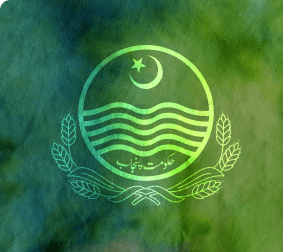Trending:
BISE Peshawar result 2025 |
BISE Abbottabad Result2025 |
BISE Mardan Result2025 |
BISE Bannu Result2025 |
BISE Swat Result2025 |
BISE Malakand Result2025 |
BISE Kohat Result2025 |
BISE DI Khan Result2025
Punjab Expands Afternoon School Program

In a significant step toward revitalizing public education in Punjab, the provincial government has relaunched and broadened its afternoon school strategy under a new identity. Previously known as the “Insaf Afternoon School Programme,” the initiative has now been simplified to “Afternoon Schools Programme,” shedding its political affiliation to focus solely on education delivery.
This transformation isn’t just cosmetic. Over 200 middle-grade institutions across the province — including several located in Rawalpindi Division — have been elevated to high school status. These schools will continue their morning sessions as middle schools and function as high schools during the afternoon shift. Admissions are actively open, supported by a dedicated fund of over Rs 475 million for infrastructure and staffing.
The revamped model allows students completing middle school to transition directly into high school classes without changing campuses. To address staffing needs, teachers opting for the afternoon shift are being offered additional financial incentives.
The move is especially targeted at rural zones where secondary schools are scarce. Every district has selected 2–7 institutions in these underserved areas. Originally rolled out in 2020 to bridge education gaps in remote locations, the Afternoon Schools Programme now includes nearly 2,000 operating units across Punjab.
To guarantee consistent performance, special oversight panels comprising selected educators have been formed across 43 districts. These teams will conduct surprise evaluations and submit performance audits. Key education monitors include Fahmida Abbasi and Nasir Saleem Satti Rawalpindi, Muhammad Kashif and Zaheer Matloob Jhelum, and Muhammad Ubaid Ashfaq, Samer Hussain, and Jahangir Ahmed Attock.
In parallel, the government is embarking on massive reforms including the privatization of 5,500 state-run schools and a teacher reallocation strategy. The latter, launching in April and wrapping up by May 31, aims to address excess staffing by reallocating redundant educators to a surplus resource pool.
Under the updated teacher deployment criteria:
- Each primary campus must include a Primary School Head Teacher PSHT and an Early Childhood Education ECE facilitator.
- One PST will be deployed for every 70 students.
- As numbers scale 105, 140, 175+, schools will receive proportional additions in teaching staff, including senior-level educators.
While authorities assert that the plan will optimize classroom learning, senior teachers are raising concerns over possible transfers or role reductions. Still, officials emphasize that these adjustments are crucial to modernizing public education in Punjab before summer 2025.
Add a Comment
Comments will be shown after admin approval.
Spam comments will not be approved at all.
Intermediate Result 2025
Related Educational News
Matric Result 2025 Punjab
10th Class Result 2025 Punjab
9th Class Result 2025 Punjab Boards
10th Class Result Gazette 2025 Punjab
Punjab Past Papers Matric 9th 10th
Primary Results 5th & 8th Class
BISE Results Intermediate & Matric
BISE Punjab Boards
Sindh Educational Boards
KPK Examination Boards
Technical Boards
Public Service Commission
University Results Gruaduation, Masters Classes
Subscribe by Email
Subscribe by Email
Position Holders Matric 2025
Position Holders 9th Class 2025
Position Holders Inter 2025
Position Holders 11th Class 2025


